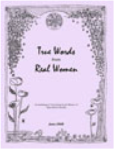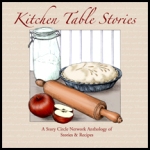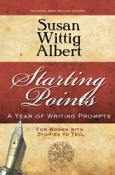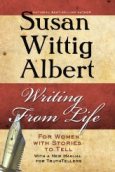by Janet Grace Riehl
What do singing on Broadway, training dogs, and mastering the art of the business pitch have in common? Patience, preparation, and perspective. I learned this valuable lesson from a young friend Annemieke Farrow (daughter of Stephanie and John Farrow of Albuquerque, New Mexico). Annemieke transitioned from a successful theater career in New York City to running a thriving dog training business in Los Angeles.
During her theater days in NYC from 1999 to 2006, she survived 4,273 auditions by using these useful rules of thumb:
1) Prepare, prepare, prepare.
2) Set a goal of what you want to learn in the audition.
3) Relax and enjoy yourself once you get there.
4) Release the outcome by declaring the experience a success if you’ve learned something and enjoyed yourself.
I transferred Annemieke’s audition survival method to prepare for my first face-to-face pitch session with a New York City agent. I’d been working on building my skills in pre-marketing a book. I studied how to write a clear plot summary, a synopsis, and E-mail pitch letters to publishers and agents. In my 5-10 minute pitch session, I put Annemieke’s basic audition thriving tips into practice.
I told the literary agent right off that I was a Pitching Virgin. I told her my plan for our meeting was to present: my writer credentials; a 2-sentence description of my project; six things I’d do to support the book; three questions I had for her. My questions were: 1) What would make such an offbeat project most marketable? 2) What do publishing firms do these days to assist authors in promoting books? 3) How does her service as an agent work?
She said what we pretty much know. Major publishers don’t do much of anything to market books for most authors these days. Mostly they work with Sales Teams who speak to book buyers at stores and sales reps working through the established distribution channels.
She explained that in selling a book that it could either go to auction (if there are many interested publishers), or go for the best offer available from the most interested firm.
Now I’m no longer a pitching virgin. Because of Annemieke’s four tips, I’m not devastated that my book isn’t right for her agency. I can declare my session an absolute success because 1) I learned lots; 2) It was great practice; 3) I enjoyed the experience, in spite of the considerable adrenaline rush in the pressure to condense so much into a teeny-weeny bit of time.
Author and movie-maker pitch sessions are comparable to the auditions musicians and actors endure as regular fare of their professional life. Because, in the pitch session, in these days of the author as personality, you audition yourself, not just your work.
It’s taxing, yes, but it’s by pitching that we connect with an audience and market for our creative work. In the business world, at the end of the cycle, our work become products. It’s the business end of the process that determines who reads or sees or hears your work. And for how long. So we better get good at it.
_________
Hey! http://www.riehlife.com chosen SCN Star Blogger for March. Learn more about our audio book “Sightlines: A Family Love Story in Poetry and Music.” Become a Riehlife villager.
Are you a creative catalyst? Pose questions about practical creativity; give ideas for future cycle themes; and join in the dialog in our comments section.







Excellent advice, Janet. And I love your friend Annemieke’s rules … think I’ll post them somewhere near my desk. Especially numbers 3 & 4.
Amber,
Yes, it’s the combination of simultaneous loose-tight properties. First you work your butt off. Then you relax and flow. I love the feeling of defining my own success.
Janet Riehl
Janet,
Your advice and example are priceless. Good for you for finding the way to succeed in this harsh era of promoting and publishing when writers really have to know what they are about. Sharing our thoughts and experiences go a long way in the preparation aspect of #1. Thanks, Arletta
Arletta,
The advice of established writers like Hal Zina Bennett and Eric Maisel was priceless to prepare for my pitch. I can’t say I was exactly relaxed. But, at least I could decide to declare it a success. And, I learned so much about pitching.
You are always such an inspiration to me with your trilogy. Now onto the promoting!
Janet Riehl
Janet,
What great inspiration! Much like a job interview, pitching ourselves is one of those things we humans tend to get all frazzled over. We put too much emphasis on validation, and if we are rejected because it’s not a good fit, instead of seeing it as a learning opportunity, a way to find the path to the “right fit” we feel as if we have failed. (Small disclaimer, “we” don’t all have this issue, but I know of many of us who do)
Your words take that fear and spin it on it’s head to allow a vision of the possible, rather than the impossible.
Thanks,
Jenny
Jenny,
It’d make an interesting, survey, wouldn’t it? Maybe it’s already been done. Sales people consider a 1-2% response to cold calls to be a great success. Something to refer to to balance our despair. 🙂
Janet